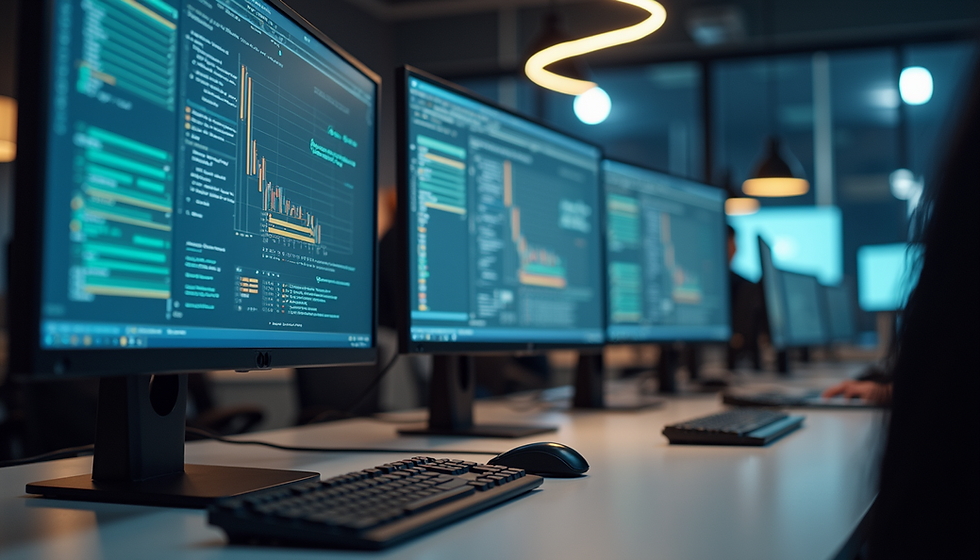Effective Solutions for Computer Repair Issues
- nativeinn

- Nov 6, 2025
- 3 min read
Computers are essential tools in our daily lives, whether for work, study, or entertainment. However, they can sometimes encounter problems that disrupt productivity and cause frustration. Knowing how to address these issues effectively can save time and money. This article explores practical solutions for common computer repair issues and highlights the benefits of professional computer troubleshooting services.
Understanding Common Computer Problems and Their Causes
Before diving into solutions, it is important to understand the typical problems that computers face. These issues can be broadly categorized into hardware and software problems.
Hardware issues include malfunctioning components such as hard drives, RAM, power supplies, or overheating.
Software problems involve operating system errors, corrupted files, malware infections, or driver conflicts.
For example, a slow computer might be caused by insufficient RAM or a cluttered hard drive. Similarly, frequent crashes could indicate hardware failure or corrupted system files.
Identifying the root cause is the first step toward effective repair. Users can perform basic diagnostics such as checking for error messages, running antivirus scans, or monitoring system temperatures.

How Computer Troubleshooting Services Can Help
When problems become complex or persistent, professional computer troubleshooting services offer valuable assistance. These experts have the tools and knowledge to diagnose and fix issues efficiently.
Some benefits of using computer troubleshooting services include:
Accurate diagnosis: Professionals use specialized software and hardware tools to pinpoint problems quickly.
Time-saving: Instead of spending hours trying to fix an issue, users can rely on experts to resolve it promptly.
Data protection: Technicians ensure that important files are backed up and protected during repairs.
Preventive maintenance: Services often include cleaning, updates, and optimization to prevent future problems.
For instance, if a computer fails to boot, troubleshooting services can determine whether the issue lies with the hard drive, motherboard, or software corruption and recommend the best course of action.

Practical DIY Solutions for Common Computer Issues
While professional help is valuable, many common problems can be resolved with simple do-it-yourself steps. Here are some practical solutions:
Slow Performance
Close unnecessary programs running in the background.
Run disk cleanup to remove temporary files.
Upgrade RAM if possible.
Check for malware using trusted antivirus software.
Overheating
Clean dust from vents and fans.
Ensure proper ventilation around the computer.
Replace thermal paste on the CPU if overheating persists.
Software Crashes or Freezes
Update the operating system and drivers.
Uninstall recently installed software that may cause conflicts.
Run system file checker tools to repair corrupted files.
Internet Connectivity Issues
Restart the router and modem.
Update network drivers.
Check for IP conflicts or DNS issues.
Unresponsive Peripherals
Reconnect devices and try different USB ports.
Update or reinstall device drivers.
These steps can often resolve minor issues without the need for professional intervention. However, if problems continue, seeking expert help is advisable.
When to Seek Professional Computer Repair Services
Knowing when to call in professionals is crucial to avoid worsening the problem or losing important data. Consider professional computer repair services if:
The computer does not power on or boot up.
There are unusual noises from hardware components.
Data recovery is needed after a crash.
Complex hardware replacements are required.
Persistent malware infections cannot be removed.
Professional services can also assist with upgrades, custom builds, and network setup, ensuring optimal performance and security.
For reliable and efficient support, consider trusted computer repair services that offer comprehensive solutions tailored to your needs.
Tips for Maintaining Your Computer to Avoid Future Issues
Prevention is better than cure. Regular maintenance can extend the lifespan of your computer and reduce the likelihood of problems.
Keep software updated: Regularly install updates for your operating system and applications.
Use antivirus software: Protect your system from malware and viruses.
Clean hardware periodically: Remove dust and debris from internal components.
Backup important data: Use cloud storage or external drives to safeguard files.
Monitor system health: Use diagnostic tools to check hardware status and performance.
By following these tips, you can enjoy a smoother computing experience and minimize downtime.
Taking proactive steps and knowing when to seek expert help are key to resolving computer repair issues effectively. Whether you choose to troubleshoot minor problems yourself or rely on professional computer troubleshooting services, maintaining your computer properly will ensure it serves you well for years to come.






Comments